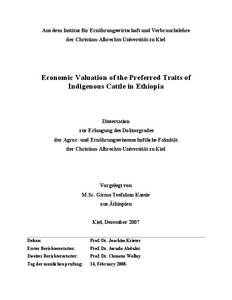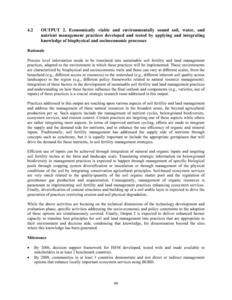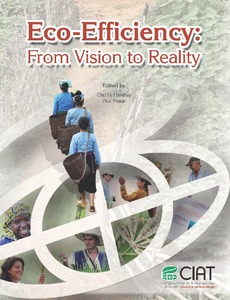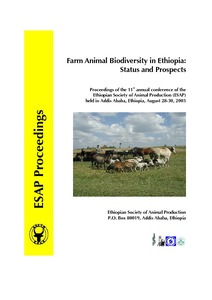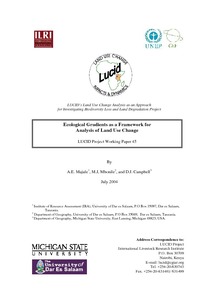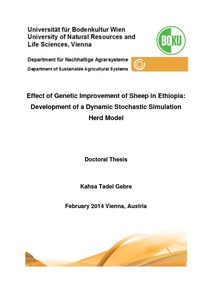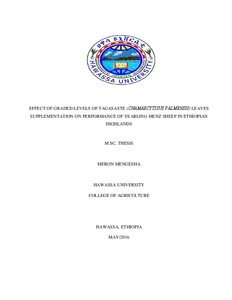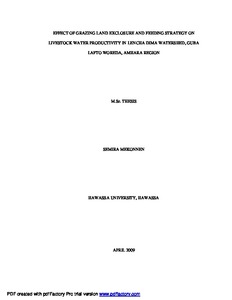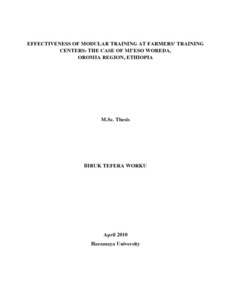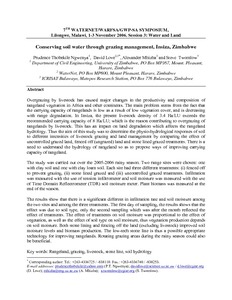rangelands
AGROVOC URI: http://aims.fao.org/aos/agrovoc/c_6448
East and Southern Africa: Key Highlights of Work So Far
Economically viable and environmentally sound soil, water, and nutrient management practices developed and tested by applying and integrating knowledge of biophysical and socioeconomic processes: Output 2
Eco-Efficiency: from vision to reality
The notion of eco-efficiency – first put forward by the private-sector at the time of the 1992 Earth Summit – has since been taken up by experts in agriculture as a guiding principle for research. Eco-efficient agriculture, according to a CIAT report, is competitive and profitable as well as sustainable and resilient, thus generating multiple benefits for the poor, especially when it offers new options for women.
Economics of AnGR conservation and sustainable use: Theory, practice and implications
Animal genetic resource (AnGR) diversity contributes in many ways to human survival and well-being.
However, 32% of livestock breeds are threatened. Such an irreversible loss of genetic diversity reduces
opportunities to improve food security, reduce poverty and shift towards sustainable agricultural
practices.
The large number of AnGR at risk in developing countries, together with the limited financial resources
available for conservation, means that economic analysis can play an important role in ensuring an
Ecological gradients as a framework for analysis of land use change
Effect of genetic improvement of sheep in Ethiopia: Development of a dynamic stochastic simulation herd model
A community-based sheep breeding program has been implemented in the highlands of Ethiopia to improve the body weight and reproductive performance of Menz sheep. This study adopts system dynamic methodology to develop a dynamic stochastic simulation herd model to evaluate the effect of genetic improvement and additional feed sources (forage production) on herd dynamics and profitability. The study also explores the opportunities of system dynamics approach in the context of designing breeding programs to predict annual genetic gain of traits.
Effect of graded levels of Tagasaste (Chamaecytisus palmensis) leaves supplementation on performance of yearling Menz sheep in Ethiopian Highlands
The effects of supplementation with graded levels of tagasaste (Chamaecytisus palmensis) leaves on feed intake, digestibility, and body weight gain (BWG) and carcass characteristics were studied using thirty yearling and intact male Menz sheep. The sheep were blocked into six blocks of five sheep based on their initial body weight and animals from each block were randomly assigned to five treatment groups with six replications per treatment in randomized complete block design (RBCD).
Effect of grazing land exclosure and feeding strategy on livestock water productivity in Lencha Dima Watershed, Guba Lafto Woreda, Amhara Region
The study aims to estimate the livestock water productivity (LWP) and to examine the effect of grazing area closure and feeding strategies on LWP at farm household level under wealth and intervention categories at Lencha Dima watershed. Results are based on survey of 120 sample households and focus group discussion. Beneficial outputs of livestock and depleted water for producing them were estimated then livestock water productivity as the ratio of the beneficial out puts and depleted water was estimated.
Effectiveness of modular training at farmers’ training centers: The case of Mieso Woreda, Oromia Region, Ethiopia
In order to bring a realistic transformation in Ethiopian agriculture, farmers need to improve their knowledge, skill and attitude & have access to information and technologies, markets etc. Currently, Farmers Training Centres are designed to provide services of extension, trainings, demonstration, information, advice, etc at grassroots level. Modular training is one of the main functions of the centers. In the study area, modular training has been offered since 2007. However, evaluation was not made to determine effectiveness in terms of changes in farmers.

